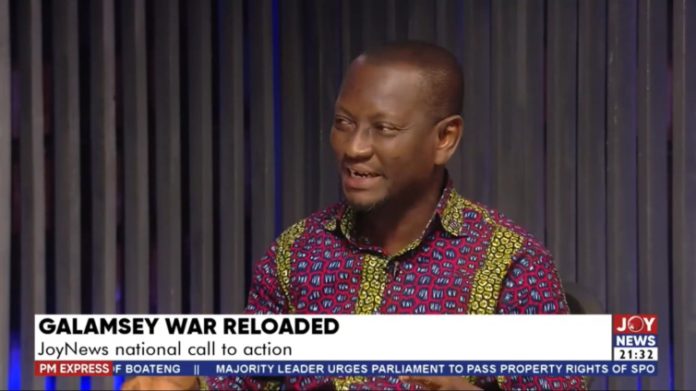A Deputy Attorney General, Alfred Tuah-Yeboah, has clarified the reasons behind the relatively lenient prison term and fine imposed on Chinese illegal mining kingpin, Aisha Huang.
According to him, Miss Huang was prosecuted for her involvement in illegal mining operations between 2015 and 2017, by which time the amended law had not been passed.
The Deputy Attorney General emphasised that there was no evidence of her engagement in illegal mining after her return to Ghana in 2022, following her initial deportation in 2018.
“When we arrested her last year [2022], there was no evidence that when she came back to Ghana, she committed illegal mining offenses. We probed into it and we didn’t find any evidence. If there had been, it would have been another matter,” he said.
Mr Tuah-Yeboah’s explanation comes after a section of Ghanaians questioned why the Chinese national was jailed for four and a half years and fined GH₵48,000.
To some, the punishment is undeserving, considering the extent of damage the ‘galamsey’ queen’s operations did to the country’s vegetation cover.
However, speaking on JoyNews’ PM Express on Monday, the Deputy Attorney General explained that the case relied heavily on evidence collected between 2015 and 2017.
He noted that the prosecution’s case was supported by several testimonies including those from local farmers who asserted that Miss Huang had negotiated with them to use their land for illegal mining.
Mr Tuah-Yeboah also commended the Ghana Immigration Service for playing a pivotal role, as they had arrested the illegal mining kingpin in 2018 before her deportation.
“The law is about evidence and not speculation. Aisha Huang’s case was prosecuted based on the evidence that we had between 2015 and 2017. Nothing more, nothing less,” Tuah-Yeboah reiterated.
Responding to questions as to why the new law and its punishment were not utilized in sentencing Miss Huang, the Deputy Attorney General clarified that the judge had applied the appropriate sentencing guidelines.
He noted that since the Chinese national committed the crimes under the old law, the judge adhered to the maximum punishment stipulated by the previous legislation.
“If you have a new law that has reduced the punishment under the old law, use it. But if the old law is lesser than the new law, use the old law; that is the law,” Tuah-Yeboah explained.
He expressed the AG office’s desire for a harsher sentence, citing the minimum sentencing guidelines for foreign nationals, but reiterated that the judge had followed constitutional provisions and the interpretation act.
The Amended Minerals and Mining Act in addition to enhancing the penalties for illegal mining, explicitly criminalises aiding and abetting illegal mining activities and the use of other equipment for mining in water bodies.
It also prescribes a minimum sentence of 15 years, and maximum of 25 years for foreigners engaged in illegal mining, who shall be deported after serving their sentence.
21 illegal miners jailed
Already, some Ghanaians have been jailed under the amended law. In October 2023, twenty-one Ghanaians were sentenced to a total of 340 years imprisonment by the Tarkwa Circuit Court for illegal mining in five different sites in the Western Region.
Apart from the jail terms, the court presided over by Hathia Ama Manu, also imposed a fine of GH¢120,000 on each of the 21 convicts, totalling GH¢2.52 million.
The convicts were sentenced separately in five different cases with various prison terms of between 15 years and 20 years for engaging in illegal mining, contrary to Section 99 of the Minerals and Mining (Amendment) Act, 2019 (Act 995).
They had pleaded not guilty to engaging in illegal mining, but the court found them guilty after it held that the prosecution, spearheaded by the Attorney-General’s Office in Sekondi, proved its case beyond reasonable doubt to establish their guilt.
ALSO READ:

